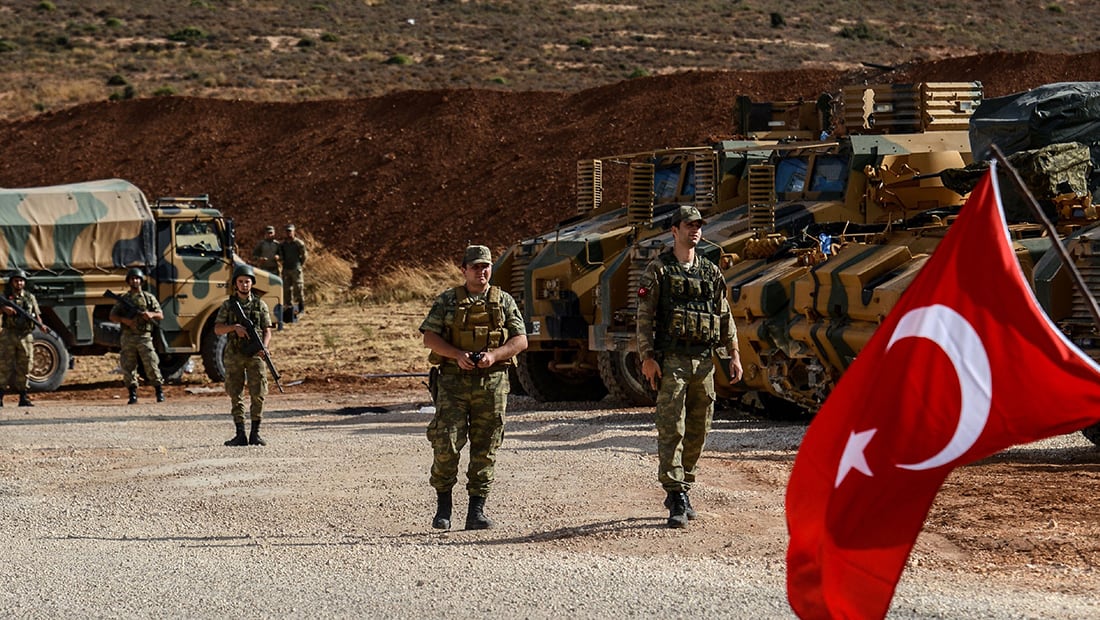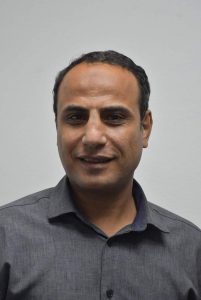Turkey aims to bolster its military presence in northern Iraq, particularly due to the increasing strength of the Kurdistan Workers’ Party. The group has fortified its positions in the region, aiming to diminish the impact of Ankara-directed military strikes. Addressing this concern, Turkish President Recep Tayyip Erdogan declared on December 28th that his country would enhance its recently established permanent bases in northern Iraq. He stated, “We’ve constructed extensive roads spanning hundreds of kilometers in northern Iraq for our permanent bases. Similar work is underway in new locations under our control.” This move is poised to significantly influence the dynamics among Turkey, Iraq, and the Kurdistan Workers’ Party.
Key Variables
It can be said that there are key variables that played a role in Turkey’s direction towards adopting this option, with the most prominent being:
1. Growing Internal Dissatisfaction in Iraq Regarding Turkish Presence: The discontent among various political and parliamentary elites in Iraq concerning Turkish military operations in northern Iraq is escalating. They view these operations as a breach of Iraq’s sovereignty, perceiving Turkish actions as an assertion of “occupation” in the northern regions. This may exert significant pressure on the future of Turkish military presence in Iraq.
It is crucial to highlight that concurrent pressures are being exerted by forces aligned with Iran within Iraqi territory, aiming to diminish Turkish military presence in northern Iraq. Anticipated is an escalation of these pressures in the coming period, particularly following the advancements made by Iran-aligned groups in the local Iraqi council elections held on December 18, 2023. In response, Turkey may proactively enhance its military presence in northern Iraq to prepare for and counteract these mounting pressures.
2. Proliferation of PKK Attacks: President Erdogan’s announcement concerning the augmentation of military bases in northern Iraq is intricately linked to the ongoing field confrontations between the Turkish army and the Kurdistan Workers’ Party (PKK) in the same region. The PKK persists in its attacks not only within northern Iraq but also across Turkish borders. The most recent incident occurred in early October, involving an assault targeting buildings affiliated with the Ministry of Interior in Ankara.
Moreover, on December 23rd, Kurdish forces successfully executed an attack near Hakurk in northern Iraq, resulting in the death of 6 Turkish soldiers and injuries to others. Consequently, Turkey’s decision to expand its bases in Iraq is a strategic move aimed at definitively halting PKK military operations, whether within northern Iraq or Turkey itself.
President Erdogan opts for military expansion in northern Iraq due to the Justice and Development Party’s vision, emphasizing Turkey’s role in obstructing the movements of the PKK and its affiliates in various regional countries. This includes the militia of the Syrian Democratic Forces (SDF), which relies on the successful self-administration experience in northeastern Syria. Turkey is concerned about the potential replication of this experience in northern Iraq, prompting the choice of military expansion and escalating its intensity as part of Turkey’s strategy to encircle Kurdish militias.
3. Escalation of Disputes on Specific Issues: Despite significant advancements in the economic and security dimensions of Turkish-Iraqi relations, certain contentious issues persist between the two nations. Notably, disagreements revolve around the water file and the continued obstruction of oil exports from the Kurdistan Region through the Turkish port of Ceyhan. This problem stems from a ruling by the International Arbitration Court in Paris, favoring Iraq and mandating Ankara to pay $1.5 billion in compensation to Baghdad for the unauthorized oil exports of Iraqi Kurdistan through the Ceyhan port from 2014 to 2018.
Turkey is apprehensive that these unresolved matters may have repercussions on its military presence in northern Iraq. There is concern that Baghdad could use the military bases as leverage to exert pressure on Ankara in the context of these disputed issues.
4. Ongoing Israeli-Gaza Conflict and Erdogan’s Military Base Expansion: Erdogan’s recent announcement about the potential expansion of new military bases in northern Iraq is situated within his strategic intent to capitalize on the international and regional attention focused on the Israeli war in the Gaza Strip. Concurrently, as Washington contends with continual military strikes on its bases in Syria and Iraq, Turkey’s regional rival, Iran, is actively engaged in confrontations with the United States on the Iraqi stage. Consequently, in response to these dynamics, Washington has taken measures to counteract the activities of Iranian proxies in the region.
Multiple Objectives
Through the augmentation of military bases in northern Iraq, Turkey pursues five primary objectives. Firstly, it aims to encircle the Kurdistan Workers’ Party (PKK), viewing it as the organization from which various Kurdish entities in the region have originated. Consequently, Ankara’s declaration to expand its military bases in northern Iraq underscores its intention to persistently target crucial PKK sites, as well as the units, forces, and affiliated organizations, thereby escalating military pressure on the party’s positions in northern Iraq.
Secondly, Turkey seeks to thwart the establishment of a Kurdish state, actively working to dismantle Kurdish entities in the region. Erdogan’s statements appear to convey a direct message to the Iraqi government, especially as calls grow to terminate the presence of foreign forces on Iraqi soil. Turkey signals that it will not diminish its forces but rather move towards further expansion in the upcoming phase, aiming to fortify its military presence and impede Kurdish separatist endeavors.
And thirdly, Turkey aims to bolster its influence at the regional level, with the Turkish military presence in Iraq positioning Ankara as a key player in the major political dynamics of the region.
Fourthly, the objective is to counterbalance Iranian influence in Iraq, given the evident clash of interests between Turkey and Iran on the Iraqi stage. Both parties strive to expand their presence, viewing it as a crucial gateway to strengthening regional influence.
Fifthly, the goal is to exploit the Kurdish crisis to consolidate electoral support for the Justice and Development Party, leveraging the escalation against the Kurds to appeal to nationalist sentiments. This is particularly pertinent in the lead-up to the local elections scheduled for March 2024.
In conclusion, Erdogan’s statements indicate Turkey’s intention to advance further in the upcoming phase, escalating the crisis with the Kurds on the Iraqi scene. This is especially noteworthy given the increasing attacks by the Kurdistan Workers’ Party within Turkey. Additionally, Turkey is growing concerned about the Kurds’ success in northeastern Syria in achieving self-governance, which Ankara perceives as a threat to its national security.


